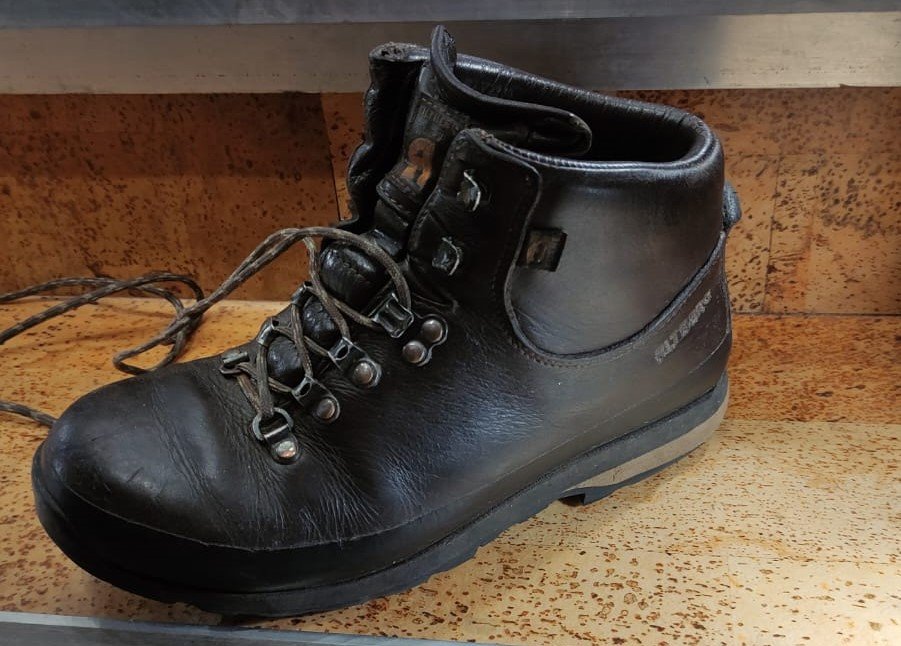Here are a bunch of frequently-asked questions involving kit (since we seem to get a lot of these).
If your question cannot be found here, or you're still wondering what all this faff is, drop us a message!
Here are a bunch of frequently-asked questions involving kit (since we seem to get a lot of these).
If your question cannot be found here, or you're still wondering what all this faff is, drop us a message!
The 'Kit Lists' lists down equipment that is required for each individual member to have before going on walks. Minimally, those items are required. The Club has some kit available for members to borrow.
For safety and relliability, we use map and compass. Also, there isn't signal where we typically head to for trips.
If you need to buy kit, Cambridge has a good supply of outdoors shops, including Cotswold Outdoor (a big chain with a large range on Bridge St.), Mountain Warehouse (good discount kit, under Cotswold), Ellis Brigham Mountain Sports and The North Face (both in Lion Yard), Decathlon (good discount kit, at the Grafton Centre) and Go Outdoors (Beehive Centre, beyond the Grafton Centre). The Club has a 15% discount at Cotswold, 15% at Ellis Brigham with Rainbow Rocket Membership and the BMC membership has various associated discounts. Most experienced club members will be glad to help if you'd like advice.

The club has a responsibility to minimise the risk to all members, and as such proper footwear is required for trips to minimise the risk of injury. Walk leaders have the right to deny those wearing inappropriate footwear from coming on walks for the safety of the group.
Make sure that the hiking boots FIT. Hikes will generally be for 6+ hours, so a good-fitting pair of boots is essential. Beyond that, boots should have good ankle support and good treads, and generally be waterproof (see image for an example of hiking boots).
When it rains when windy, the rain can (and will) soak straight through even water-resistant trousers. Having waterproof overtrousers ensures that you stay (reasonably) dry.
If you're asking this question, the answer is probably that it's not waterproof enough.
Anything, really. A woolen pullover will work, or a synthetic fleece, or a down jacket. So as long as it's warm and easily removable, it will work
Weather can be very unpredictable. In case the weather suddenly turns, an extra midlayer can help insulate against the cold.
The easiest way is to wrap anything that needs to be waterproofed in plastic bags/bin liners. If necessary, one can also put everything in the bag into one big bin liner and tie that up securely.
Don't worry! A sturdy enough bag that doesn't get waterlogged will do. Make sure it is comfortable to carry for long periods. If you decide to come on more trips, you'll soon realise why eeveryone uses a rucksack, but for a first trip a good bag will do.
Big enough to carry all your personal items. A 25-30L rucksack will generally be able to contain everything you need on a regular trip.
No. A head torch keeps both hands free, which is important if you ever need to navigate the fells in the night. The club has head torches to rent if necessary.
We advise to bring 1L minimum. If the weather is hot, to bring even more (2L or more). It's better to have too much water than to run out of water on the hillside.
Emergency rations are simply food that is meant to only be eaten in an emergency e.g. benighted. Bring something that is dense but keeps well.
Food is highly personal. But, in general, a ready supply of calories (chocolates, snack bars, etc.) is very useful to have on hand to snack on.
Just remember that there are no microwaves on the hill, so all food will end up cold by the time it is consumed (unless it is in a Thermos).